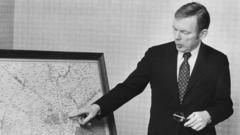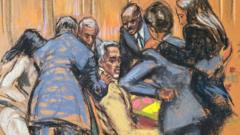Charles Dolan, the influential creator of HBO and a significant figure in the cable television industry, has passed away at the age of 98. His innovative contributions transformed how New Yorkers consumed television, establishing a legacy that will endure in the entertainment world.
Visionary HBO Founder Charles Dolan Passes Away at 98

Visionary HBO Founder Charles Dolan Passes Away at 98
The pioneering billionaire behind HBO and Cablevision, Charles Dolan, has died, leaving a lasting legacy in the television industry.
Charles Dolan, the billionaire visionary credited with revolutionizing cable television, has died at the age of 98. Dolan played a crucial role in bringing cable services to New York during the 1960s and 70s, initially selling specialized programming to hotels through his Teleguide service while cable began flourishing in rural regions.
In 1964, he struck a landmark deal with New York to wire select buildings in Manhattan for cable service. His strategic move to broadcast Knicks and Rangers playoff games on cable significantly increased viewer interest and helped establish a new era of sports broadcasting. This lead to the creation of Home Box Office (HBO), which would become a household name in the film and entertainment industry.
Dolan later sold both his cable service and HBO to expand his vision, ultimately founding Cablevision, which provided extensive television and internet services to homes across the northeastern United States. By 2015, the Dolan family sold Cablevision to the European communications giant Altice for nearly $18 billion (£14.3 billion).
At the time of his death, Dolan held a net worth of approximately $5.4 billion (£4.3 billion), according to Forbes. His son, James Dolan, currently oversees the family's business empire, which has garnered both admiration and criticism from the public, especially regarding the performance of the Knicks and disputes over programming access.
Despite the controversy surrounding his family's legacy, Charles Dolan’s pioneering contributions to the cable television industry and visionary approach have solidified his place as a transformative figure in American broadcasting history.




















